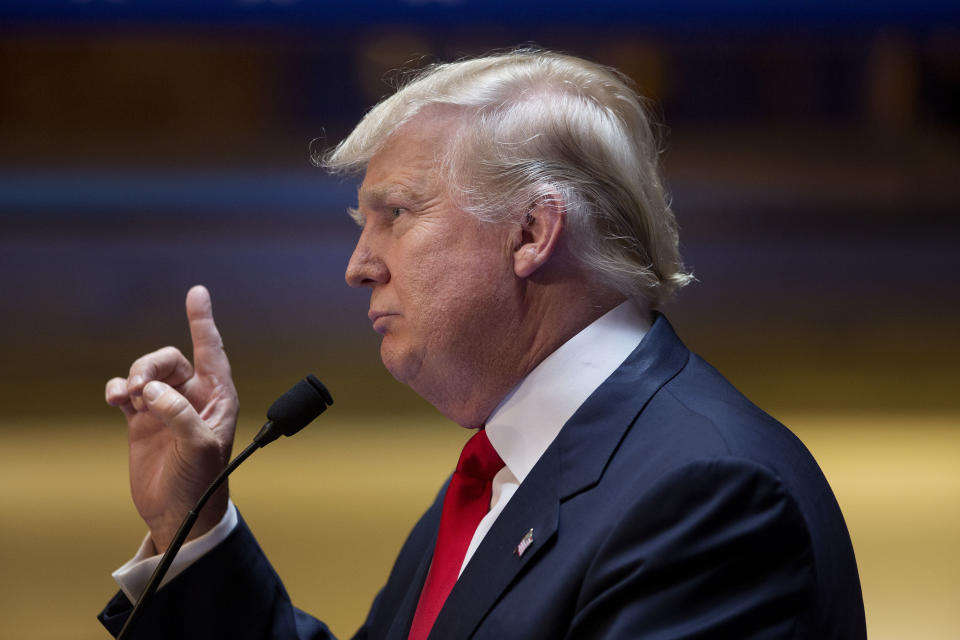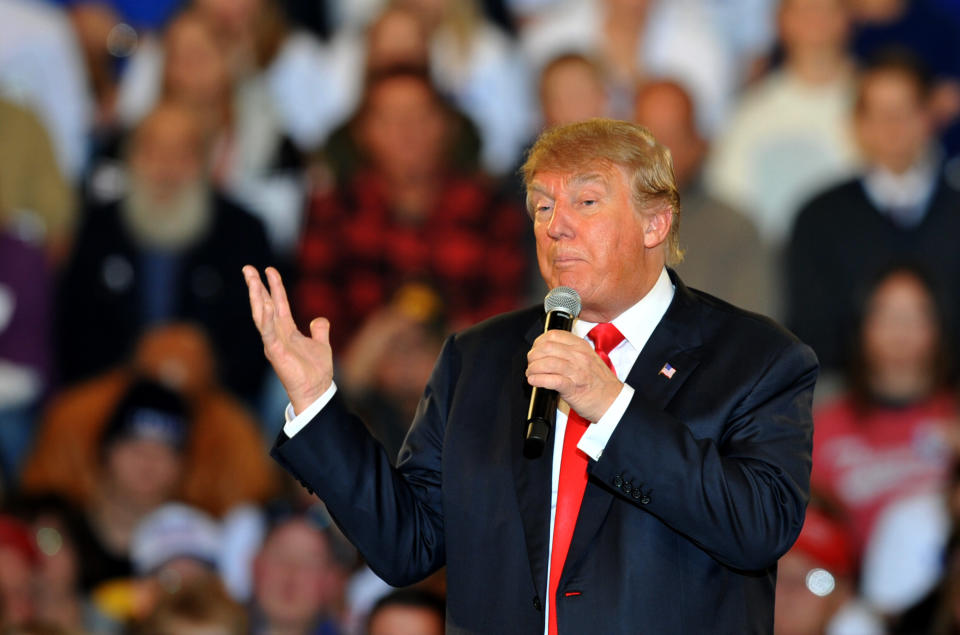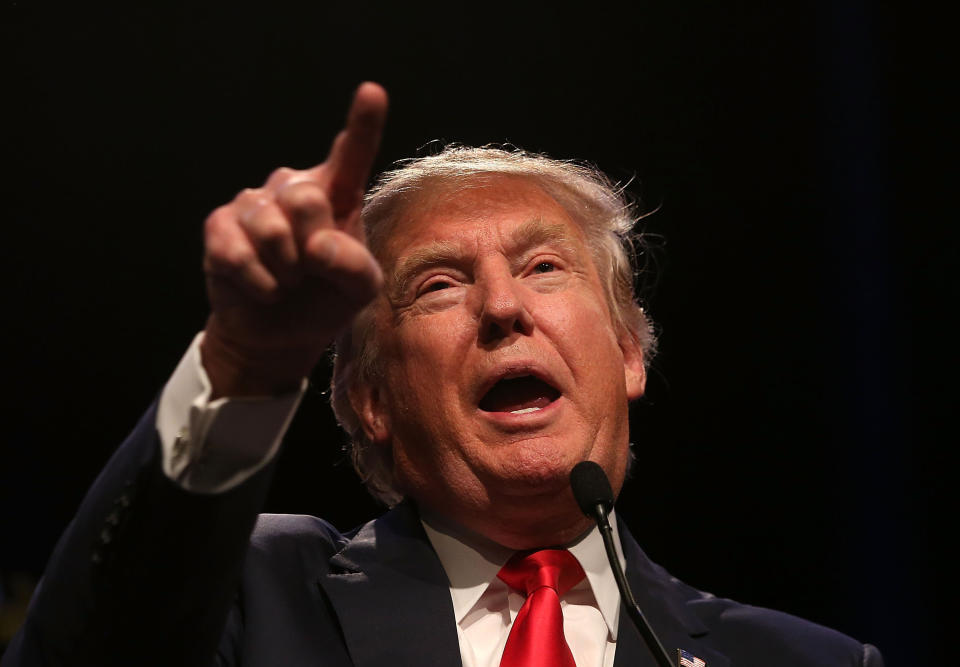Department Of Justice To Sue California Over ‘Sanctuary’ Policies
WASHINGTON — The Trump administration will ramp up its fight against so-called “sanctuary” policies by filing a lawsuit on Tuesday against the state of California over its laws meant to protect undocumented immigrants.
The lawsuit, which Attorney General Jeff Sessions will formally announce on Wednesday, is the latest in a string of moves by the White House, Department of Justice and Department of Homeland Security to combat local efforts to limit police cooperation with deportation. Thus far, this has largely involved condemnations and threats, including the withholding of federal funds and prosecuting public officials.
Now, the administration is seeking to block three California laws by arguing that they violate the Constitution and federal law.
“The Department of Justice and the Trump administration are going to fight these unjust, unfair and unconstitutional policies that have been imposed on you,” Sessions is expected to tell law enforcement officers during a speech on Wednesday, according to prepared remarks. “We are fighting to make your jobs safer and to help you reduce crime in America. And I believe that we are going to win.”
To make its case, the DOJ is in part pointing to a ruling on a very different state-level immigration law: Arizona’s SB 1070, which was meant to expand local police efforts to find and arrest undocumented immigrants. The Supreme Court sided with the Obama administration by striking down major provisions of that law in 2012.
The Trump administration plans to argue that California is similarly overstepping its authority, senior DOJ officials said Tuesday. The lawsuit will challenge three laws that DOJ officials say hurt the government’s ability to carry out immigration enforcement.
Supporters of the California laws and “sanctuary” policies in general argue that they make communities safer by allowing local police to work better with immigrant communities and focus time and resources on duties other than immigration matters. (“Sanctuary” policies differ widely from place to place and there is no set definition for the term.)
California Gov. Jerry Brown (D) responded to Sessions’ suit Tuesday evening, calling it a “political stunt.”
“At a time of unprecedented political turmoil, Jeff Sessions has come to California to further divide and polarize America,” he said in a statement. “Jeff, these political stunts may be the norm in Washington, but they don’t work here. SAD!!!”
California Attorney General Xavier Becerra (D) also defended his state’s policies.
“In California, our state laws work in concert with federal law,” Becerra said in a call with reporters Tuesday evening. “Our state officials work in concert with federal officials every day. We have no intention changing that here in California. But what we won’t do is stop being focused on public safety. We’re in the business of public safety, not deportation.”
The most prominent of the three California laws is SB 54, which Brown signed in October and went into effect Jan. 1 in spite of criticism from Sessions and other Trump officials. The Trump administration is seeking to block provisions of the law that stop local law enforcement from telling Immigration and Customs Enforcement when they will release certain individuals and from facilitating their transfer unless they’ve committed certain crimes.
The DOJ suit will argue that state policy violates a statute known as Section 1373, which broadly states that jurisdictions cannot bar local law enforcement from sharing information with federal officials about individuals’ immigration status. Proponents of laws like the one in California argue that by sharing arrest information with the federal government, they’re in compliance; but the DOJ plans to argue that Section 1373 also requires them to share things like when an individual is set to be released. The DOJ does not plan to argue that Section 1373 requires local law enforcement to hold people solely based on ICE requests ― known as “detainers” ― which many jurisdictions have rejected based on cost and constitutionality concerns.
The DOJ suit will also target a law called AB 450 that went into effect Jan. 1 and restricts private employers’ ability to cooperate with federal immigration officials, including by requiring a subpoena or warrant to enter workplaces and by notifying workers about reviews of employment documentation. The third law the DOJ is targeting is AB 103, a provision of a budget bill approved last year that allows the state to review federal immigrant detention of immigrants inside the state. The DOJ will argue that those laws violate the Constitution’s Supremacy Clause by attempting to preempt federal authority.
The pending DOJ lawsuit is a separate legal matter from challenges against the Trump administration’s threats to withhold federal grants from jurisdictions over “sanctuary” policies, which are playing out in courts in California and Illinois.
This story has been updated with statements from Jerry Brown and Xavier Becerra.
Also on HuffPost
April 2015

June 2015

August 2015

September 2015

November 2015

February 2016

March 2016

April 2016

July 2016

September 2016

September 2016

Love HuffPost? Become a founding member of HuffPost Plus today.
This article originally appeared on HuffPost.

